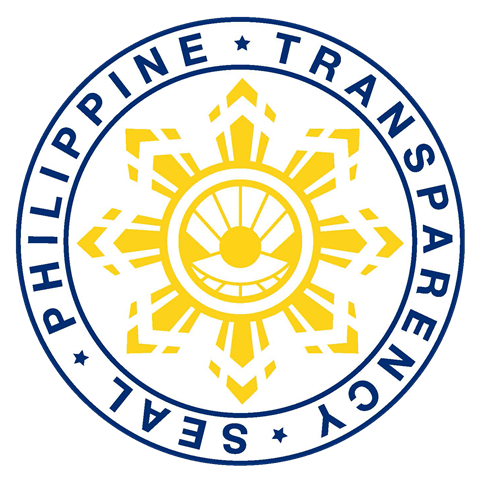The observance of the International Day for the Eradication of Poverty can be traced back to 17 October 1987 when over a hundred thousand people from all walks of life gathered at the Plaza of Human Rights and Liberties (that time the place is named Trocadero Plaza) in Paris, France to honor the victims of extreme poverty, hunger, violence, and ignorance. The site is also the place where the Universal Declaration of Human Rights was signed in 1948.
The people gathered upon the appeal of Father Joseph Wresinski, a French Catholic priest and founder of All Together in Dignity (ATD) Fourth World Movement. They proclaimed that poverty is a violation of human rights and affirmed the need to come together to ensure that these rights are respected. These convictions were inscribed in a commemorative stone unveiled on that day.
The text engraved in the stone reads in English, as follows:
OCTOBER 17, 1987
ON THIS DAY, DEFENDERS OF HUMAN AND CIVIL RIGHTS FROM EVERY CONTINENT GATHERED HERE. THEY PAID HOMAGE TO THE VICTIMS OF HUNGER, IGNORANCE AND VIOLENCE. THEY AFFIRMED THEIR CONVICTION THAT HUMAN MISERY IS NOT INEVITABLE. THEY PLEDGED THEIR SOLIDARITY WITH ALL PEOPLE WHO, THROUGHOUT THE WORLD, STRIVE TO ERADICATE EXTREME POVERTY.
Wherever men and women are condemned to live in extreme poverty, human rights are violated. To come together to ensure that these rights be respected is our solemn duty.
“ Joseph Wresinski (1917 “1988) founder of ATD Fourth World
Since then, people of all backgrounds, beliefs and social origins have gathered every year on October 17th to renew their commitment and show their solidarity with the poor.
Replicas of the commemorative stone have been unveiled around the world, and serve as a convergence point to celebrate the Day.
UN Response
In appreciation of the non-government organizations initiative, the United Nations General Assembly passed resolution 47/196 declaring October 17th as the International Day for the Eradication of Poverty on December 22, 1992, and invited all States to devote the Day to presenting and promoting, as appropriate in the national context, concrete activities with regard to the eradication of poverty and destitution.
The resolution further invites intergovernmental and non-governmental organizations to assist States, at their request, in organizing national activities for the observance of the Day, and requests the Secretary-General to take, within existing resources, the measures necessary to ensure the success of the Day’s observance by the United Nations.
Philippine Response
In response, former President Fidel V. Ramos signed Proclamation No. 269 in October 4, 1993 declaring October 17 of every year as the National Day for Overcoming Extreme Poverty in observance of the ATD Fourth World-led World Day for Overcoming Extreme Poverty. On October 17 of the same year, President Ramos unveiled at Rizal Park a replica of the Commemorative Stone in Honor of the Victims of Extreme Poverty. It has since become the site of the annual commemoration organized by the National Anti-Poverty Commission in partnership with the ATD Fourth World Philippines, National Parks Development Council and City Government of Manila. Replicas of the commemorative stone have been established in the cities of Davao (laid in 1994) and Oroquieta (2001) and in the municipalities of Esperanza, Agusan Del Sur (2007), Barotac Viejo, Iloilo (2008), and Buenavista, Quezon (2008).
On October 18, 2004, then President Gloria Macapagal-Arroyo signed Proclamation 717 declaring the period of October 17-23 as the National Week for Overcoming Extreme Poverty (NWOEP). The Proclamation designated NAPC to lead, coordinate, monitor and evaluate the nationwide yearly observance of NWOEP in coordination with key partners and stakeholders in poverty reduction.
The Catholic Bishops Conference of the Philippines (CBCP) dedicates the 2nd Sunday of October for extreme poverty day.
Objectives
1. To make the public aware of the week-long commemoration and instill in them the virtues and principles espoused by the observance which is the refusal of extreme poverty and the respect of human rights, dignity, and freedom;
2. To recognize and appreciate the various initiatives of poor communities and local government units in uplifting the lives of poor Filipinos; and
3. To invite more stakeholders to join in the fight against poverty and build a critical mass to ensure a greater chance of effectively eradicating poverty at the soonest time.
Theme for National Week for Overcoming Extreme Poverty 2013
This years proposed theme is “Working towards a World without Discrimination. Building on the experience and knowledge of people in extreme poverty.”
Plans for the Observance of the National Week for Overcoming Extreme Poverty in 2013
To achieve these objectives, the following activities are proposed to be undertaken spearheaded by NAPC.
1.Commemoration Program on October 17 at the Rizal Park, Manila
Site Location: Replica of the Commemorative Stone, Pathway to Glory (Chess Plaza) beside the Open Air Auditorium
a) Wreath-laying rites to be lead by H.E. President Benigno S. Aquino III and reading of the commemorative stone text
b) Testimonials and Pledges in the fight against poverty by community leaders
c) Universal Prayer for the Eradication of Poverty and Panata
d) Message of the President
2.Convergence Events at the National, Regional and Local Levels
NAPC Member Agencies including the Basic Sector Councils and the LGU leagues will be requested to organize a convergence event any day from October 17 to 23, 2013. These activities shall be enrolled to the NAPC Secretariat and consolidated into a Calendar of Convergence Events in Observance of the National Week for Overcoming Poverty.
A Convergence Event is any stand-alone milestone activity organized or conducted by a specific National Government Agency (NGA) or cluster of NGAs, Regional Poverty Reduction Action Teams, Local Government Unit(s), basic sector organization, private/business sector organization, etc.. The proposed activities are presented below.
Be part of the Solution
Member agencies of the National Anti-Poverty Commission, non-government organizations, community-based associations, civil society groups, schools, other government agencies and institutions in the private sector support the IDEP by actively calling their leaders and legislators to make the fight against poverty a central part of their governance and development agenda.
October 17th is a gathering for peace and human dignity in the spirit of the declaration engraved on the replica of the commemorative stone in honor of the victims of extreme poverty.
The Day symbolizes the daily struggle of those who live in extreme poverty around the world and is the moment when they can freely express their daily struggle for independence from public or private assistance, a chance for the poor to present their needs, concerns and wishes, and the recognition and respect to human rights and dignity of everyone. Participation of the poor, the marginalized and disadvantaged sectors of society themselves must be at the center of the Day’s observance. The commemoration of October 17th also reflects the willingness of people living in poverty to use their expertise to contribute to the eradication of poverty, helping their government improve their standards of living.
Get involve and be aware “ locally and nationally. Together, lets add voices and contribute to eradication of poverty in our country.
Poverty is a violation of Human Rights. Organize an activity on October 17th.
List of activities that can be undertaken during IDEP and NWOEP
It should be noted that the activities should focus around the theme. The theme changes every year by NAPC in consultation with key partners and stakeholders. Create activities that have the greatest impacts in generating awareness for, and commitments in the fight against poverty. The following are examples for your guidance:
1. Signing of Call to Action petition to accelerate achievement of the MDGs, or conduct of information campaign thru house-to-house visits or in radio and TV programs
2. Wreath-laying ceremony on the replica of the commemorative stone or where replica will be unveiled
3. Pledges and testimonies of the poor living in poverty
4. Lead in praying the Universal Prayer, recitation of the Panata and messages focusing on poverty alleviation and social reform during the flag-raising ceremonies
5. Organizing music festival or cultural events
6. Organizing anti-poverty trade fairs, arts or photo exhibits
7. Hanging of banners in support to October 17th event
8. Holding of multi-sectoral dialogue, forum, seminar to create awareness on the need to address the needs of the poor or discuss specific issues affecting the poor
9. Gathering the people for an interfaith dialogue that may include a moment of silence or prayers to honor the victims of extreme poverty, hunger and discrimination
10. Mobilize resources for an anti-poverty advocacy, e.g., End Poverty Now, increase budget to health and education, Implement RH Law Now, etc.
11. School-based – contest on essay-writing, declamation, debate, drawing, student leader of the year, best news article on the MDGs, best case studies on poverty reduction, best research paper, etc.
12. Community-based “ contest on backyard gardening, dengue-free zone, cleanest purok, most outstanding barangay health worker, family of the year, model barangay of the year, most child-friendly health facility, most improved barangay in water and sanitation, etc.
13. Local government initiated “ Ulat sa Bayan through press conference or assembly to highlight accomplishments in poverty alleviation efforts; Align Peoples Day to NWOEP week to launch, inaugurate or turn-over of pro-poor projects; medical and dental outreach
Let us know what activity you are planning. Contact the National Anti-Poverty Commission Secretariat thru Mr. Sem H. Cordial, director of Commission Coordination & Planning Service at telefax number (02) 927-9796, telephone number (02) 426-5028 local 129, e-mail address: rpnicanor_napc@yahoo.com.
Recommended Websites
1. United Nations dag Hammerskjöld library provides background information as well as valuable links http://www.un.org/en/events/povertyday/
2. The Universal Declaration of Human Rights – http://www.un.org/en/documents/udhr/
3. Philippine Development Plan, Millennium Development Goal, regional economic situationer reports, and socio-economic databases and other socio-economic related concerns “ http://www.neda.gov.ph
4. Poverty related databases “ http://www.nscb.gov.ph
5. Poverty reduction programs under Pres. Aquino Administration like Pantawid Pamilyang Pilipino Program (4Ps), KALAHI-CIDSS “ http://www.dswd.gov.ph
6. Anti-Poverty Agenda of the Philippines “ http://www.napc.gov.ph
Strategies for Citizens Action
1. Make Poverty History website is highly supported by contemporary media stars and provides lots of information about worldwide poverty – http://www.makepovertyhistory.org/
2. Citizens action on achieving the MDGs “ http://www.endpoverty2015.org/citizen-action/
3. Learn how to raise funds, organize activities or assist the organization in their projects – http://www.atd-fourthworld.org/-Philippines-.html, and http://www.savethechildren.org/site/
October Calendar of Events
Universal Children’s Month
Rural Women’s Month
4-18 Garantisadong Pambata Week
16 UN World Food Day
17 UN International l Day for the Eradication of Poverty
17-23 Philippine National Week for Overcoming Extreme Poverty
17-23 National Fisheries Week
18-22 Health Education Week



